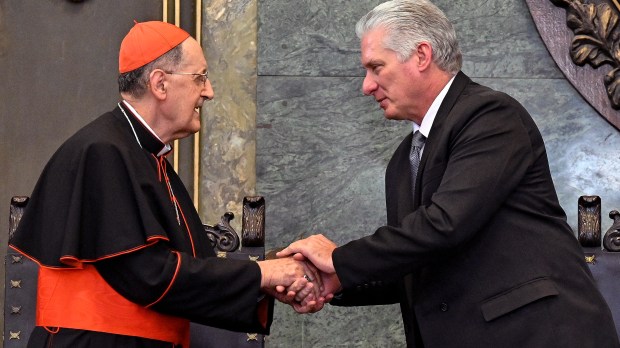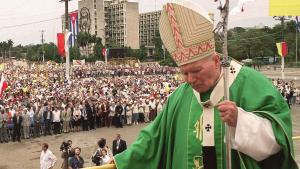A representative of Pope Francis has called on the government of Cuba to release protestors who were arrested during street demonstrations in the country in 2021.
“The Pope very much wants there to be a positive response, amnesty, clemency – whatever it is called is secondary – but it’s important that the young people who expressed their thoughts in this way should be allowed to return home,” Cardinal Beniamino Stella said in reference to protestors who were arrested in July 2021.
Cardinal Stella made his remarks as he was leaving Havana University, where he took part in commemorations of the 25th anniversary of Pope John Paul II’s historic visit to Cuba. The cardinal, who was Apostolic Nuncio to Cuba at the time of John Paul’s visit, spent 18 days in the country as Pope Francis’ envoy to mark the anniversary.
Thousands of Cubans took to the streets in cities across the island on July 11, 2021, to call for greater freedom and relief from the country’s economic and COVID-19 crises. A report by the U.S. Commission on International Religious Freedom said that authorities responded by “detaining, often violently, an estimated 700 demonstrators and activists.”
“Culture of encounter”
Cardinal Stella said that before traveling to Cuba he discussed the jailed protestors’ situation with Pope Francis. He told journalists covering the event at Havana University, which was attended by current Cuban President Miguel Díaz-Canel [in photo above, greeting Cardinal Stella], that the Vatican had repeatedly raised the possibility of an amnesty for the demonstrators.
“Obviously this has been a theme of our conversations,” he said.
In his talk at the university, the papal envoy stressed the importance of the Church’s mission in society and the need to work for reconciliation, according to Zenit news agency. He spoke of the urgency of promoting “authentic reconciliation and fraternity” to allow “the youth to fulfill their dreams and projects in Cuba” without hate or conflict.
He underlined the need for a “culture of encounter [that enables the] building of bridges over which we can travel in our search for the common good, for which we are all responsible.”
Cardinal Stella’s trip, which included a tour of the country’s dioceses, ended February 10.



